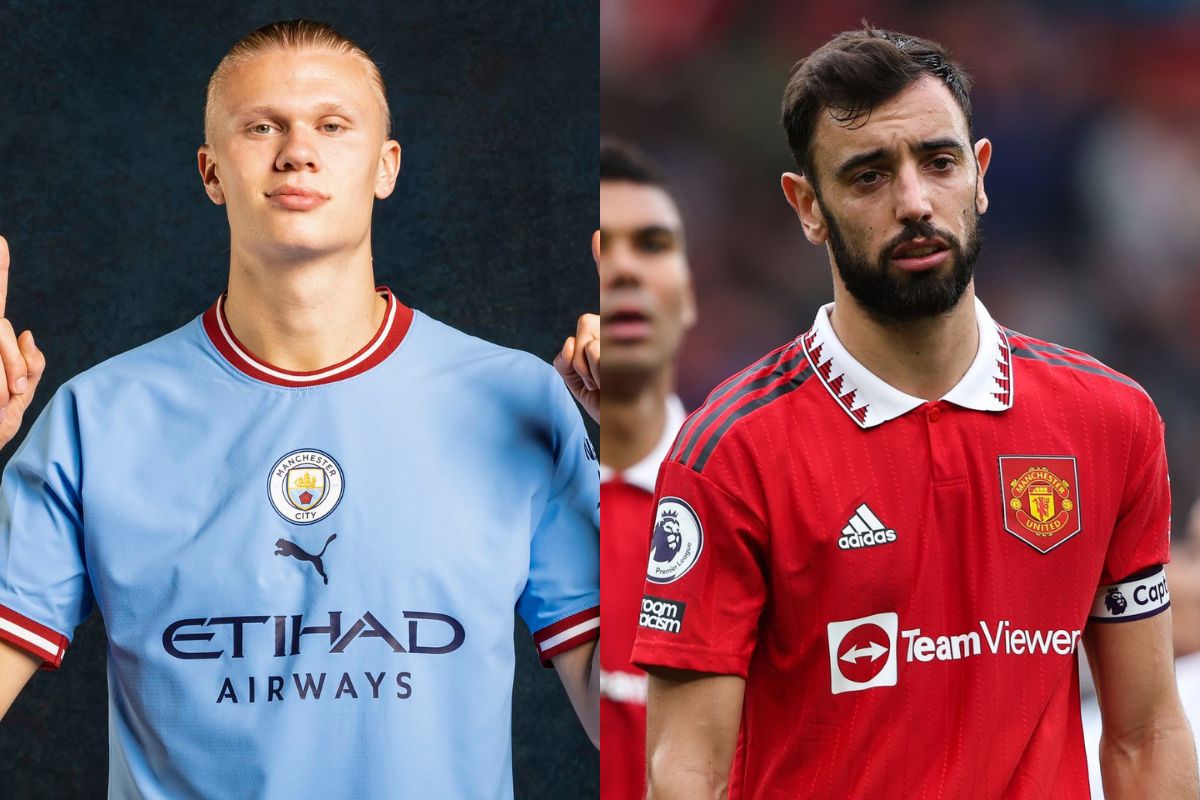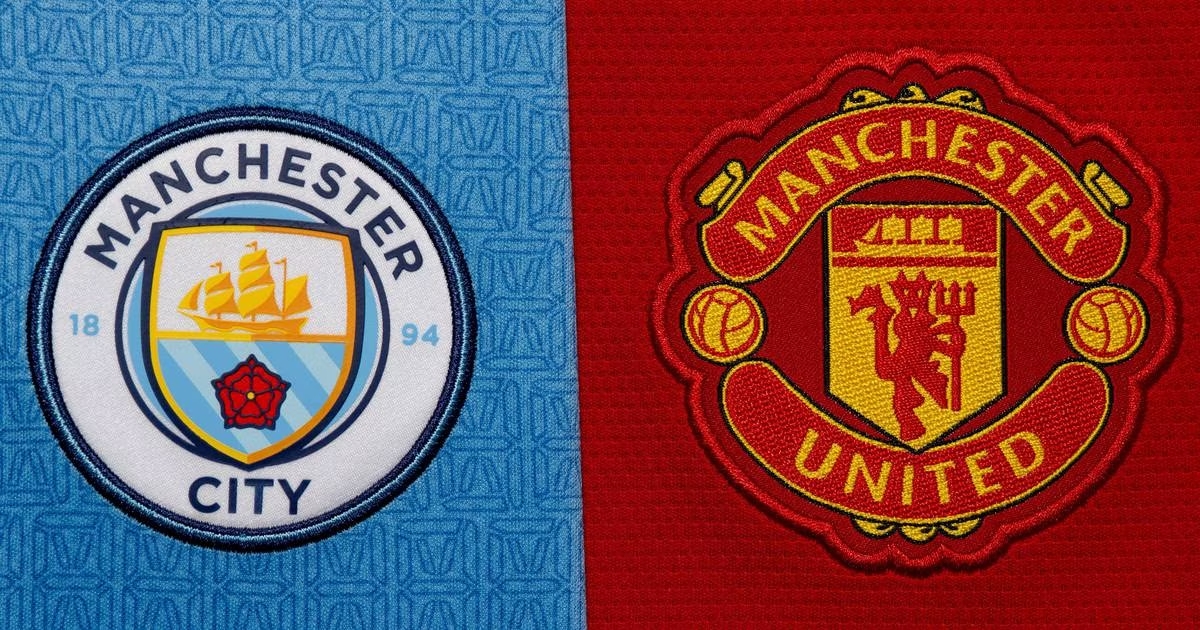Campaigners are arguing that football clubs like Manchester United and Manchester City should remove the ships from their crests due to concerns that they are associated with historical slavery. The heated issue came to a climax on Piers Morgan’s Uncensored show, where the British media personality and Arsenal supporter revealed he found history’s airbrushing “exhausting.”
The Guardian too recently published a piece ‘Abandon ship: does this symbol of slavery embarrass Manchester and its football clubs?’ written by Simon Hattenstone. The long read mentions the many ships that passed through Manchester’s industrial ports during the 1800s, implying that slave labour was a significant contributor to the city’s successful economy.

The crests of Manchester City, Manchester United and why they are being scrutinised now
Manchester City decided to return to the circular badge with a red rose in 2016, after in the 1990s, a golden eagle was introduced. The crest bears a shield, where a golden ship and the red rose of Lancashire are placed. The royal blue wordmark, executed in a modern and solid sans-serif typeface, is placed around the edge of the circular frame. The date mark “1894” is horizontally positioned on the frame in a light blue tint.
As far as Man United concerned, the club’s brilliant and powerful insignia features a crisp geometric crest in yellow with a straight top line and a triangular bottom, as well as a narrow red banner with a yellow ship above the red geometric heraldic design with the trident. The crest is sandwiched between two arching red ribbons with the club’s name inscribed across them. Two yellow footballs with red detailing and a double yellow and black outline separate the two ribbons.
However, both Manchester City and United’s crest bearing ‘ship’ sparked the topic of whether the three-masted vessels on many club crests across the United Kingdom have racial overtones with ties to the British slave trade and should thus be removed. Piers Morgan opted to talk about it and quickly got into a heated debate with his guests, Bonnie Greer and TalkTV contributor Paula Rhone-Adrien.
The programme had hardly begun when it devolved into a full-fledged yelling war, with Greer and Rhone-Adrien recommending that the removal of ships from football emblems be explored, while Morgan passionately opposed it. Morgan said:
“Like every one I know, I thought slavery was disgusting. I’m very glad that everyone came round to their senses that it was disgusting and that Britain actually lead the way in ending the damn thing. Slavery was disgusting. However, it turns out that historians say Manchester didn’t adopt ships as an emblem until 1842 – 35 years after the abolition of slavery. So they would have had nothing to do with it.

Morgan lost it when Rhone-Adrien questioned the veracity of these claims. He exclaimed:
“Little pictures of ships on a footballer’s badge? Who cares?! It’s got nothing to do with it. Every single family in Britain, if you go back far enough, you’ll have people in their past 100s of years ago, who employed slaves, almost certainly. And therefore, we know that was wrong then. Why should everybody today who had nothing to do with it spend their entire time apologising for it?”
The panel then discussed historical individuals and events, with Greer and Rhone-Adrien pushing the audience to accept, comprehend, and sometimes apologise for these things. In response, Morgan offered the audacious notion that he recruit persons of Viking ancestry as a ‘sorry’ for their invasion of Britain in the 1000s. “Once you start this woke rampage, there is no end,” he said.
Returning to the subject of Manchester City and United removing their badges, Morgan stated:
“Why should footballers have to remove crests which contain images of ships which according to many historians were adopted as an emblem 35 years after slavery was abolished. Are all ships racist?”
To which Greer responded: “We don’t know that, but we need to investigate it. Why not? What’s wrong with that?”
As the programme progressed, the panellists repeatedly talked over each other as they fiercely pushed their argument, making it difficult to understand what they were saying at times. They did, however, highlight that teams from other places linked with slavery, such as London, Liverpool, and Bristol, unlike Manchester City and United tended to avoid ships on their crests.
